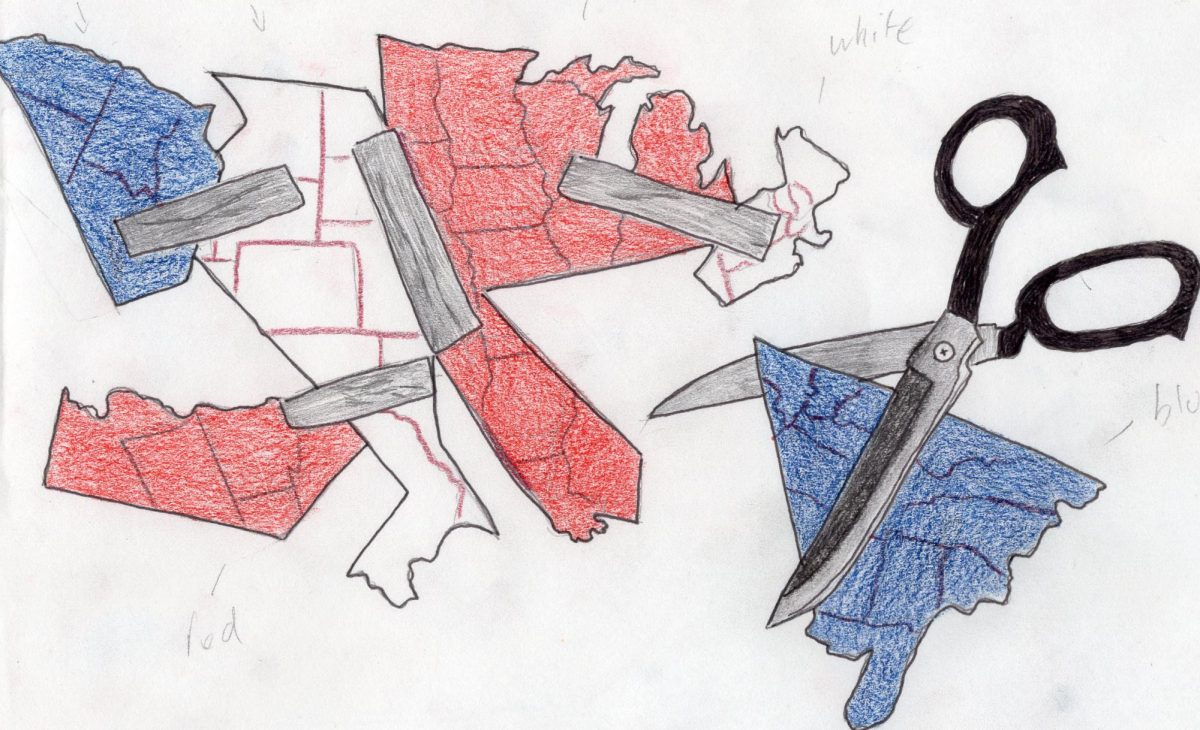With the amount of clothing being mass-produced from these factories, the browsing selection increases every week. “What makes an online retailer different from a local business in the aspect of fast fashion is the volume,” Brina Thomas said. “We are not launching new products every week.”
The ethical implications of fast fashion websites like Shein, Cider, Temu and a multitude of others have come to the forefront of conversation for some.
These businesses focus their manufacturing on creating their products as quickly as possible and selling them at a deep discount.
The younger public eye often favors Shein because of its wide variety of styles.
“I order off of Shein like once every two months,” Sophomore Sophia Holmes said. “When I get paid, that’s the first thing I do.”
These online sites can give inspiration and ideas for future outfits.
“I’ll see someone with a shirt I like on TikTok and I comment, ‘Where did you get that shirt,’” Holmes said. “They will respond with ‘Shein,’ so when I find the shirt, I also find a bunch of other things that I like.”
New items of clothing are constantly being added to online shops, making it impossible to see everything one at a time.
“It’s like Target,” Holmes said. “You go there for one thing and see everything else and are like, ‘I want that.’”
Although Holmes has shopped on Shein for quite some time, she said there are some negatives.
“I have spent $518 on 15 orders in about a year and a half,” Holmes said. “One time I got the totally wrong package and nothing in there [was] what I had ordered. I got a phone case when I ordered pants.”
Besides receiving the wrong package, the product itself can have a couple of defects — from sizing to the quality of the product upon arrival.
“It’s not about the quality of the product for them, it’s how much they can make and how fast they can ship it out,” Holmes said. “Everyone shops on Shein. It’s about quick, fast, easy, cute and trendy.”
Fast fashion stores make clothing more available to the public by lowering their fee for shipping or the total amount in the consumers’ cart. Through the consumer’s eyes, how the item looks and the cost is often the most important thing. However, when taking into account the big picture, product development can take a toll on the environment.
What makes the items so cheap is the material that is being used. It’s often non-recyclable and contains toxic dyes that will eventually end up in landfills polluting the domain. Fast fashion is one of the biggest polluting industries in the world, according to the United Nations Environment Programme.
For American-manufactured clothing, prices can increase because of the cost of labor in the states.
“It’s just the cost of production,” Nixa High School business teacher Tyler Killen said. “A lot of the time it’s cheaper internationally because of labor and sometimes resources can be cheaper overseas. In the end, the finished product will be very similar.”
The decision to shop from international-based companies solely depends on the person.
“A lot of people who are patriotic tend to favor products that are made in America,” Killen said. “I think it’s a choice you have to make to sort of seek out those American-made products. It takes an attitude adjustment and a focus to be able to do that besides just buying whatever the cheapest is. You have to be willing to sometimes pay more if you want to do that.”
To help with the effects of fast fashion, shopping locally can decrease the amount of resources being used. For example, 5 Pound Apparel is a local business in Springfield that gives back with every purchase.
“Supporting local is extremely important,” 5 Pound Apparel owner Brina Thomas said, “86 cents when you spend local stays local.”
Brands like 5 Pound Apparel would not be considered a fast fashion brand because of the manufacturing process and the overall business.
“Fast fashion means we typically have new launches — new products basically launched every single week,” Thomas said. “The clothes that are being produced are being made in these essentially glorified sweatshops run by individuals overseas that are not making living wages of any kind.”
A common outcome of fast fashion is called “disposable fashion.” This trend consists of only wearing a piece of clothing once or twice, then throwing the item out. It’s easy to do this due to the low prices of clothing that is being offered. Consumers tend to give up one item to come in possession of a new one.
“Say I wear a clothing item one time, then what do you do with that item? You try to justify [it] by donating it,” Thomas said. “Unfortunately, the sad truth about the donation cycle is that these clothes don’t go anywhere.”
Shopping locally doesn’t just go for buying clothes, it goes for all products.
“Even shopping at your local Target or Walmart, they collect sales tax and county tax that support your local
community,” Thomas said.
Making a change to support local businesses can benefit the community and have an impact on the environment.
“I always encourage people to look for the labels that say ‘ethically made,’” Thomas said. “That is a big help to consuming responsibility.”










